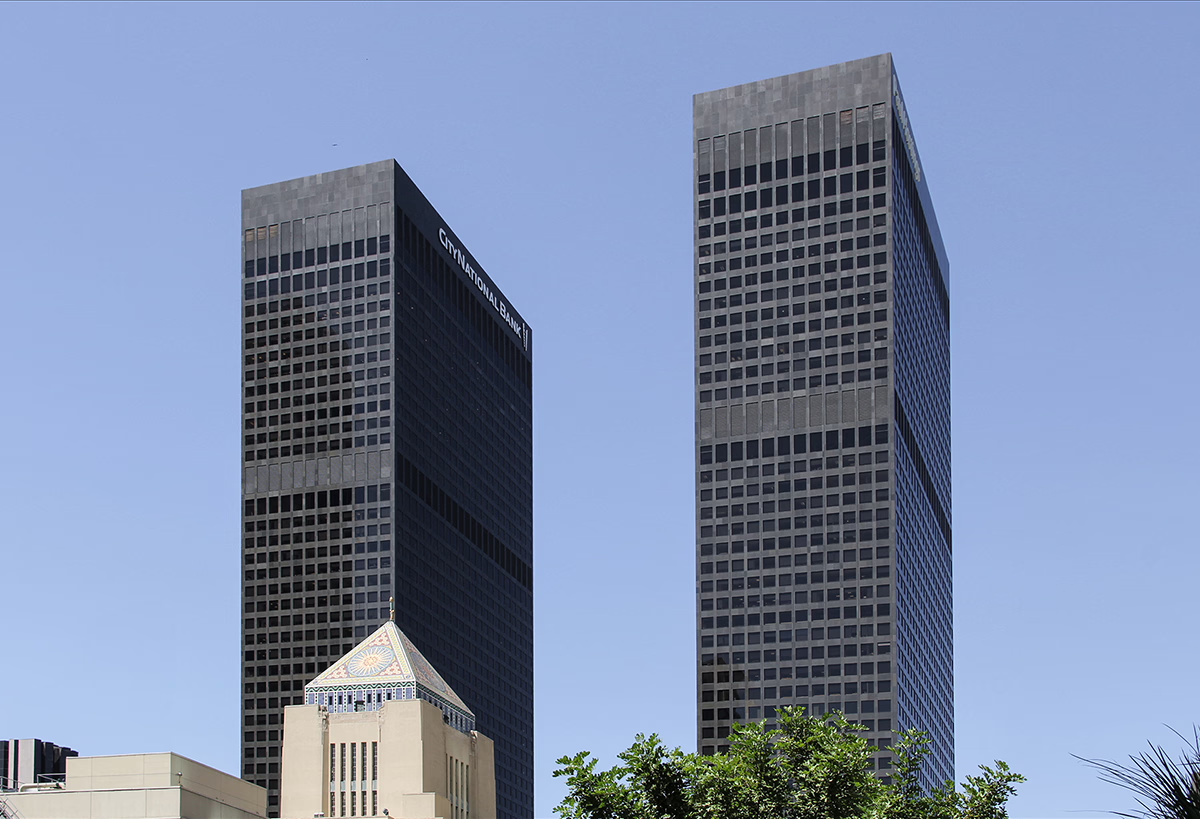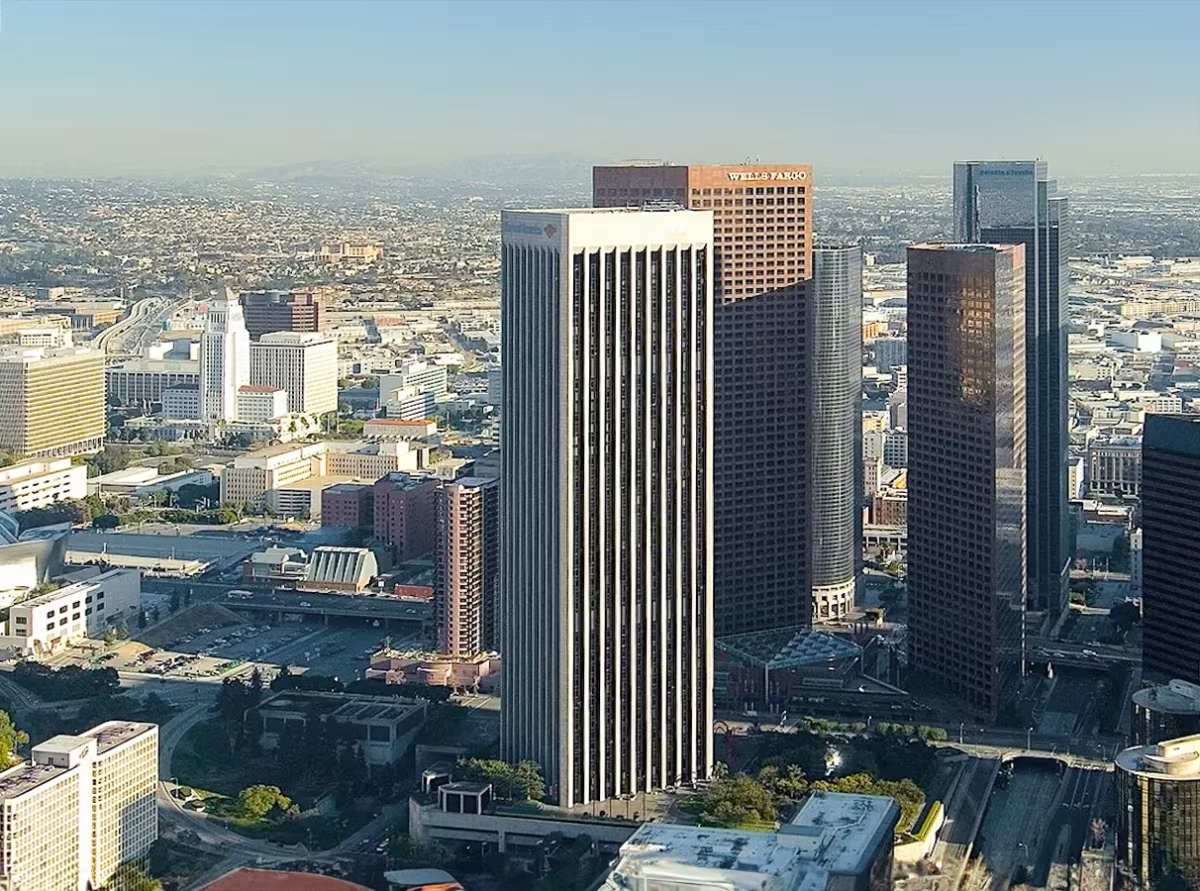City National Plaza vs Bank of America Plaza Building


Comparing the City National Plaza and the Bank of America Plaza Building is interesting because they both stand in Los Angeles, CA, and were completed within 3 years of each other, but they were designed by different architects.
This offers a unique glimpse at how rival designers approached projects in the same city during the same era.
Height & Size
The Bank of America Plaza Building is clearly the larger tower of the two, both in terms of height and number of floors. It rises to 735ft (224m) with 55 floors above ground, while the City National Plaza reaches 699ft (213m) with 52 floors above ground.
Of course, each project may have faced different briefs or regulatory constraints, which we don't really know about and could also explain the outcome.
Architectural Style
Both the City National Plaza and the Bank of America Plaza Building were designed in line with the aesthetic conventions of the International Style style.
Both buildings were completed when the International Style style was already past its peak. This makes them feel like late echoes of the movement, more reflective of continuity or nostalgia than of cutting-edge design at the time.
Uses
Both the City National Plaza and the Bank of America Plaza Building were designed to serve as commercial towers, and that has remained their main use since their completion, serving similar roles in the urban fabric.
Both towers provide significant parking capacity, with City National Plaza offering 2485 spaces and the Bank of America Plaza Building offering 343.
Structure & Facade
The two buildings opted for different structural and facade solutions.
The City National Plaza uses a Framed Tube In Tube system, which combines a strong central core with a perimeter tube of columns, while the Bank of America Plaza Building uses a Frame system, that relies on a regular grid of columns and beams to sustain its weight.
And when it came to the facade, the Window Wall went with a Window Wall facade, which uses panels fitted between floor slabs, leaving slab edges visible, while the Bank of America Plaza Building opted for a Curtain Wall facade, that uses a lightweight glass curtain wall hung from the structure.
| City National Plaza | Bank of America Plaza Building | |
|---|---|---|
| Albert C. Martin & Associates | Architect | AC Martin & Associates |
| 1970 | Construction Started | 1973 |
| 1972 | Year Completed | 1975 |
| International Style | Architectural Style | International Style |
| Commercial | Current Use | Commercial |
| 52 | Floors Above Ground | 55 |
| 4 | Floors Below Ground | 9 |
| 213 m | Height (m) | 224 m |
| 206,000 m² | Usable Area (m²) | 132,081 m² |
| 32 | Number of Elevators | 30 |
| Framed Tube In Tube | Structure Type | Frame |
| Steel | Vertical Structure Material | Steel |
| Concrete | Horizontal Structure Material | Concrete |
| Yes | Facade Structural? | Yes |
| Granite, Glass | Main Facade Material | Granite, Glass |
| A. C. Martin Partners | Structural Engineer | A.C. Martin & Associates |
| CA | State | CA |
| Los Angeles | City | Los Angeles |
| 505 555 South Flower Street | Address | 301 333 South Hope |